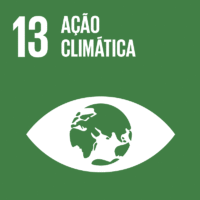Ciência-IUL
Publicações
Descrição Detalhada da Publicação
Mitigation and adaptation strategies to offset the impacts of climate change on urban health: A European perspective
Título Revista
Building and Environment
Ano (publicação definitiva)
2023
Língua
Inglês
País
Reino Unido
Mais Informação
Web of Science®
Scopus
Google Scholar
Abstract/Resumo
Climate change threatens urban health, whether that refers to the human or environmental aspects of urban life. At the same time, initiatives of city regeneration are envisioning alternative forms of the urban environment, where derelict spaces have the potential to be brought back to life in ways that would not compromise urban health. Regeneration processes should utilise mitigation and adaptation strategies that consider the future needs and anticipated role of cities within the context of the discourse about climate change, accounting for expected and unforeseen impacts and regarding the city as an agent of action rather than a static territory too complex to change. Nevertheless, literature implicating these three parameters synchronously, namely, climate change, cities, and health, has been scarce. This study aims to fill this gap through a systematic literature review, exploring adaptation and mitigation strategies that can be employed in urban regeneration efforts aiming to mitigate climate change and its impacts on urban health as well as identifying the main trends and opportunities overlooked. Findings show that even though the emphasis is given to the physical actions and impacts of climate change and urban health, an emerging theme is the need to engage civic society in co-designing urban spaces. Synergistic relationships, collaborations and avoidance of lock-in situations appears to be the most significant subtopic emerging from this literature review One main recommendation is to promote a community-driven, inclusive, participatory approach in regeneration projects. This will ensure that different vulnerabilities can be adequately addressed and different population groups will have equitable health benefits.
Agradecimentos/Acknowledgements
--
Palavras-chave
Climate change,Urban health,Systematic literature review,SWOT analysis,Urban regeneration,Urban design
Classificação Fields of Science and Technology
- Ciências da Terra e do Ambiente - Ciências Naturais
- Engenharia do Ambiente - Engenharia e Tecnologia
- Ciências da Saúde - Ciências Médicas
- Geografia Económica e Social - Ciências Sociais
- Outras Ciências Sociais - Ciências Sociais
- Outras Humanidades - Humanidades
Registos de financiamentos
| Referência de financiamento | Entidade Financiadora |
|---|---|
| 2021-1-IT02-KA220-HED-000032223 | Comissão Europeia |
Contribuições para os Objetivos do Desenvolvimento Sustentável das Nações Unidas
Com o objetivo de aumentar a investigação direcionada para o cumprimento dos Objetivos do Desenvolvimento Sustentável para 2030 das Nações Unidas, é disponibilizada no Ciência-IUL a possibilidade de associação, quando aplicável, dos artigos científicos aos Objetivos do Desenvolvimento Sustentável. Estes são os Objetivos do Desenvolvimento Sustentável identificados pelo(s) autor(es) para esta publicação. Para uma informação detalhada dos Objetivos do Desenvolvimento Sustentável, clique aqui.

 English
English



